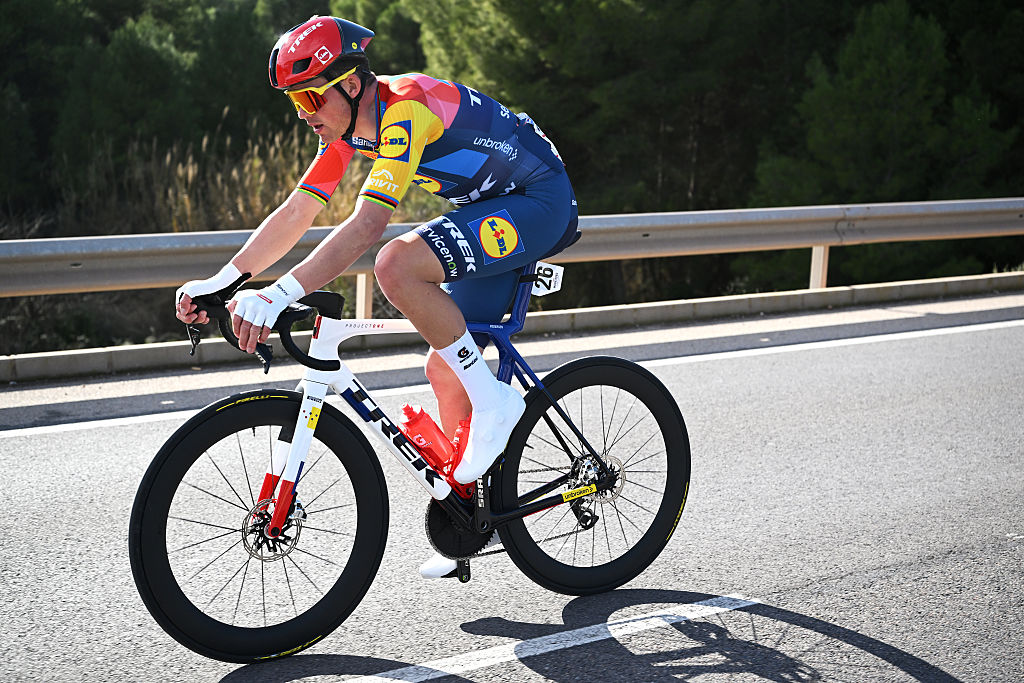Eufemiano Fuentes concerned about sport's impact on athletes
Doctor Eufemiano Fuentes, the Spaniard at the centre of the Operación Puerto affair that erupted in...
The latest race content, interviews, features, reviews and expert buying guides, direct to your inbox!
You are now subscribed
Your newsletter sign-up was successful
Doctor Eufemiano Fuentes, the Spaniard at the centre of the Operación Puerto affair that erupted in May 2006, spoke out about the negative consequences of professional sports on its athletes' health. The 52 year-old was invited as a special guest to a conference of sports medicine during the Vuelta a Maspalomas, a Spanish event attended by 300 cyclo-tourists.
"No worries, I am able to prescribe almost any medicine without having to think about anti-doping controls or others things," said Fuentes of his work as a family doctor to Filippo Maria Ricci of La Gazzetta dello Sport. He arrived at the conference on the Canary Islands after seven hours of work in the surgery room. "Cycling? It is something of the past. A lot of good memories, and I still have many offers for work. However, the decision was made and I will not turn back. I don't follow it; on TV I watch the news and documentaries."
Fuentes answered some questions from the audience of near 50 people, but was careful not to compromise his testimony regarding Operación Puerto – "The procedure is shelved, but not closed," he noted.
He spoke of sports impact on professional athletes. "You cannot race a tour on bread and water. Alternatively, you can if you are able to go at a 28 [km/h] average, not 42. The Grand Tours have to be modified radically, otherwise they will vanish."
He went though a slide show that helped demonstrate his point, according to the Italian newspaper, and used medical terminology that many in attendance would have had difficulty in understanding. "The cyclists are like miners: they know that they are at risk, but it is their work. Sport affects your health, and the doctors have to help."
To defend his theory, Fuentes pointed towards a football player for Sevilla FC who died recently. "Some months ago died a football player, Antonio Puerta," he continued. "He suffered from cardiac arrests that were undiagnosed – at least not until the autopsy. I think that little is invested in prevention and too much in penalties. It is a huge hypocrisy. In some cases, good or bad, the doping products are considered the only cure, but they are prohibited."
The issue is delicate, and certainly storing blood bags in Madrid for professional cyclists around the world to re-use at a later date was considered a risky – and not healthy – activity on the part of Fuentes and his collaborators, such as José Merino Batres.
The latest race content, interviews, features, reviews and expert buying guides, direct to your inbox!
"Are the cyclists criminals? Certainly if you permit them to have their privacy violated while living in a free country. However, the cyclists were born to suffer, and they accept it all or almost all."
He was asked about Ivan Basso, one of the only cyclists to be sentenced based on relations to Fuentes and Puerto. "Really?" was his reaction to hearing the news. "I did not know. I don't follow cycling anymore."
Cyclingnews' recent coverage of 'Operación Puerto'
April 2, 2009 - Valverde indignant over possible suspension
April 1, 2009 - Valverde: Italy requests two-year suspension
March 13, 2009 - Le Monde newspaper hit with fine over Puerto allegations
March 2, 2009 - WADA president Fahey asks for Puerto evidence
February 24, 2009 - Spanish federation seeks access to Puerto blood bags
February 20, 2009 - CONI considers Valverde case while UCI awaits verdict
February 19, 2009 - Valverde under criminal investigation
February 11, 2009 - Valverde summonsed for Operación Puerto in Italy
February 8, 2009 - Eight charged in Operación Puerto
